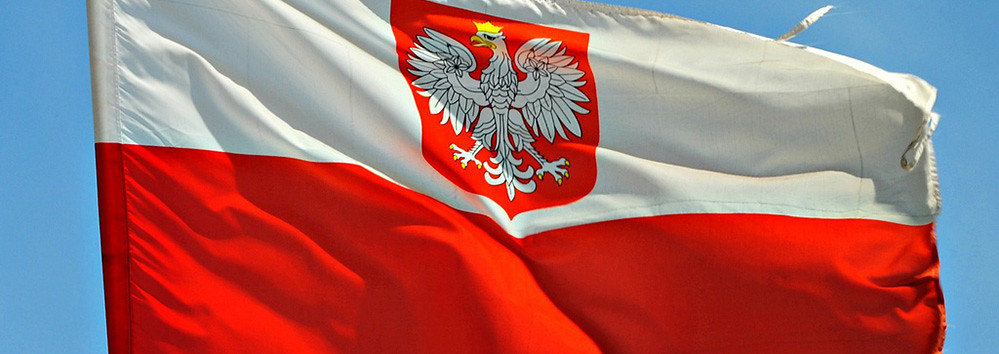What Almost No Media Tells You About the EU's Punishment Operation Against Poland
The European Commission activated today what many media describe as the "atomic bomb" of European sanctions against Poland, which could be left without the right to vote in the EU.
Judicial reform as an excuse: immigration and Christianity as background
The excuse of this decision, until now never taken by the European Union, is the judicial reform of the current Polish Government. A reform to which I dedicated an article here, explaining what others do not tell. But in the background there are other reasons that nobody is hiding at this point. One of them is the refusal of Poland to accept the migratory quotas imposed by Brussels, and also the defense of Christian values by the Polish Government, against a European political elite that is trying to impose gender ideology and abortion. In fact, in September the European Parliament passed a resolution considering "violence against women" the existence of laws that protect unborn children. The result of these policies is that the EU is becoming a big government that only admits one way of expressing its opinion.
The hypocrisy of the Brussels elites in judicial matters
I believe that the Polish Government is mistaken in politically mediating Justice, but I find extremely hypocritical that the EU only looks at the Polish case. For example, the Netherlands does not even have a Constitutional Court. It is precisely the country of Frans Timmermans, first vice-president of the European Commission and European commissioner of the Improvement of the Legislation, Relationships, Institutional Relations, Rule of Law and Charter of Fundamental Rights. He was who announced the sanctions against Poland today, accusing his government of violating the rule of law and judicial independence. But the thing in the Netherlands still goes further.
The curious judicial independence that exists in the country of Frans Timmermans
As Greta Massa Gallerano, Ph.D. in Law from the University of Calabria and the University of Granada, points out, the Dutch Constitution "grants (indirectly) to Parliament the exclusivity of the constitutionality control of the laws." Article 120 of that Constitution states: "The constitutionality of Acts of Parliament and treaties shall not be reviewed by the courts." In addition, Article 118.1 says: "The members of the Supreme Court of the Netherlands shall be appointed from a list of three persons drawn up by the Lower House of the States General." And Article 119 establishes that parliamentarians, ministers and secretaries of state can only be judged by that court. That is to say, that the components of the Dutch Supreme Court are elected by politicians, and those same politicians can only be judged by that court. Is this what Frans Timmermans and his patriots understand by judicial independence? Does Mr Timmermans plan to announce actions to sanction the Netherlands?
In the country of Juncker the judges are appointed by the Grand Duke
Let's look at the case of Luxembourg, the country from which Jean-Claude Juncker, president of the European Commission, comes. This says Article 90 of the Constitution of Luxembourg: "Justices of the peace and judges of the courts are appointed directly by the Grand Duke. The councilors of the Court and the presidents and vice-presidents of the district courts are appointed by the Grand Duke on the advice of the Superior Court of Justice." That is to say, that there the Head of State appoints the judges. Imagine for a moment what would be going on if the Polish judicial reform had granted the President of the Republic of Poland the power to appoint judges, which has not even been the case. Well that happens in Luxembourg. Does this understand judicial independence Juncker and his compatriots? Will Mr Junckers announce actions to sanction Luxembourg?
In Merkel's country, politicians appoint the Constitutional Court
Let's see the case of Germany now. As such, that country does not even have a Constitution proper. There is a Fundamental Law of the Federal Republic of Germany. Its Article 94 states the following: "The members of the Federal Constitutional Court shall be elected by halves by the Bundestag and the Bundesrat", that is, by the Federal Parliament and by the Federal Council (so to speak, the German Senate). That is to say, the members of the German Constitutional Court are elected by politicians of the Legislative Power. Article 95 talks about the Federal Courts of Justice, Contentious-administrative, Social, Finance and Labor, which function as supreme courts. In point 2 of the aforementioned article states: "The judges of these courts will be appointed by the federal minister responsible for the respective field, together with a Commission for the election of judges, composed of the ministers of the Länder competent in their respective field and by an equal number of members elected by the Bundestag." That is to say, that as you can see, politicians also take part in the election of the members of those supreme courts. It must be said that German Chancellor Angela Merkel has criticized the Polish judicial reform. Does that mean that it is going to reform the German Fundamental Law? Maybe we will see Merkel asking for sanctions against her own country?
In the country of Macron the Constitutional Council is elected by politicians
Let's see the case of France now. In that country, the supreme authority in constitutional matters is vested in the Constitutional Council. According to Article 56 of the French Constitution, that Council is composed of nine members: "Three of the members are appointed by the President of the Republic, three by the President of the National Assembly, three by the President of the Senate." That is to say, all the members of that Constitutional Council are elected by politicians. In addition, as the governing body of judges France has the Superior Council of the Magistracy. It has 15 members, of which six are appointed by the President of the Republic, the President of the National Assembly and the President of the Senate (each appoints two members). The current President of France, Emmanuel Macron, has been one of the most belligerent politicians against Poland. During the French presidential elections last spring he promised to use EU structures to punish Poland. And why does not he use EU structures to ask France for politicians not to get into the judiciary?
Who chooses the European Commission and who are its members?
For the rest, there is a striking detail of all this political offensive of the Brussels elites against Poland. Who has chosen the European Commission? In case you do not know, I'll explain it to you: the president of that Commission is elected by the European Parliament on the proposal of the European Council (formed in turn by the heads of State or Government of the member countries). The remaining 27 members are appointed by the European Council. That is to say, that the European Commission acts as a government, but citizens do not participate in their election. But there is more significant data on the composition of this curious European government. To begin with, I wonder how many European citizens know one of its members (known as commissaries), even if only to the one theoretically appointed by their country. Do Spaniards know, for example, that Miguel Arias Cañete is one of them? Curiously, the Polish commissarie is Elżbieta Bieńkowska, from the Civic Platform, that is to say, the main opposition party to the current Polish government. It would not be risky to assume that this has not had any influence on the current punishment that the Commission has undertaken against Poland, but in case anyone believes that it has not been so, we must add that the current President of the European Council is the Pole Donald Tusk, also of the Civic Platform.
Those who lost the last Polish elections now govern from Brussels
We must bear in mind that the Civic Platform had 24% of the votes in the last Polish general elections of 2015, compared to 37% of the votes of the Law and Justice party, currently in the government in that country. One wonders if the Polish opposition is embarking on a legal offensive or a revenge operation for having lost the elections. In any case, with this punishment operation against Poland, the already considerable rejection in that country towards the EU will only increase. This punishment and the consolidation of the Visegrad Group (composed of Hungary, Poland, the Czech Republic and Slovakia), which brings together countries that are very critical of the line followed by the elites of Brussels, could end up assuming a fracture of the European Union, provoked largely due to the efforts of their leaders to increase their power at the expense of the national sovereignty of the member countries. Now that is a clear case of authoritarianism.
|
Don't miss the news and content that interest you. Receive the free daily newsletter in your email: Click here to subscribe |
- Most read
- The Pegasus case and how it could end with Pedro Sánchez due to a decision by France
- The brutal 'touch and go' of a Lufthansa Boeing 747 at Los Angeles Airport
- The real reason for Sánchez's victimizing letter using his wife as an excuse
- What did Morocco find in Pedro Sánchez's cell phone to humiliate him in this way?
- The massive takeoff of more than half of the United States B-2 Spirit stealth bombers
- Lenin: numbers, data and images of the crimes of the first communist dictator
- Sánchez's 'reflexion' gives way to a wave of leftist pressure on judges and media

 ES
ES





Comentarios:
Adam
Thank you for these article.
I’m from Poland.
It’s true.
11:07 | 21/12/17
Opina sobre esta entrada: